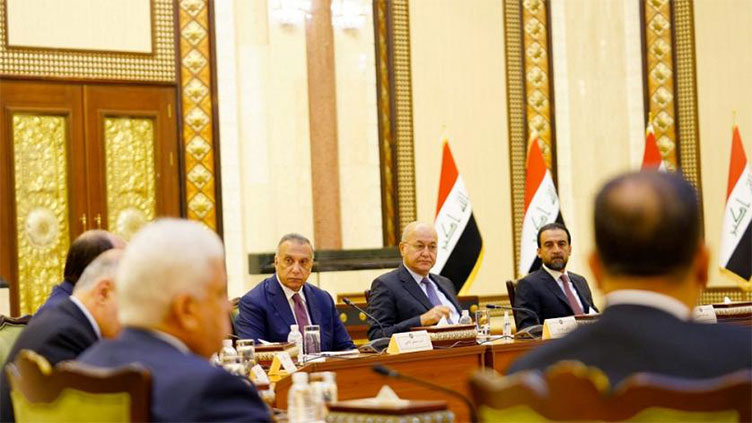Iraq powers agree to work towards snap elections following unrest

World
Iraq's top executive powers and major parties agreed Monday to work towards holding early elections.
BAGHDAD (AFP) - Iraq s top executive powers and major parties agreed Monday at a meeting boycotted by powerful Shiite cleric Moqtada al-Sadr to work towards holding early elections, a week after deadly unrest, the prime minister s office said.
The president, prime minister and parliament speaker met with representatives of political parties to chart an exit from an 11-month-long political paralysis.
They "agreed to form a technical committee comprising the various political forces... to bridge differences with the aim of reaching early elections", Prime Minister Mustafa al-Kadhemi s office said in a statement.
Early elections have been a key demand of Sadr and his supporters who have called for the dissolution of parliament.
Sadr s rivals in the pro-Iran Coordination Framework want a new head of government appointed before new polls are held.
Under the constitution, parliament can only be dissolved by an absolute majority vote in the house, following a request by one-third of deputies or by the prime minister with the approval of the president.
Participants at Monday s meeting "renewed their invitation for brothers in the Sadrist movement to take part in technical and political meetings... to reach a solution," the statement said.
The dialogue was the second of its kind following an initial meeting last month, also boycotted by Sadr.
It came a week after Sadr supporters clashed with the army and Iran-backed factions after they stormed government headquarters in the capital s fortified Green Zone.
More than 30 Sadr supporters were killed and hundreds injured in nearly 24 hours of violence that ended when Sadr called on his supporters to pull out.
Sadr s bloc emerged from elections last October as the biggest in the legislature, with 73 seats, but far short of a majority.
Since then the country has been mired in political deadlock that has left Iraq without a new government, president or prime minister.
In June, his lawmakers quit in a bid to break the logjam.
Last month, Sadr said "all parties" including his own should give up government positions in order to help resolve the crisis.

